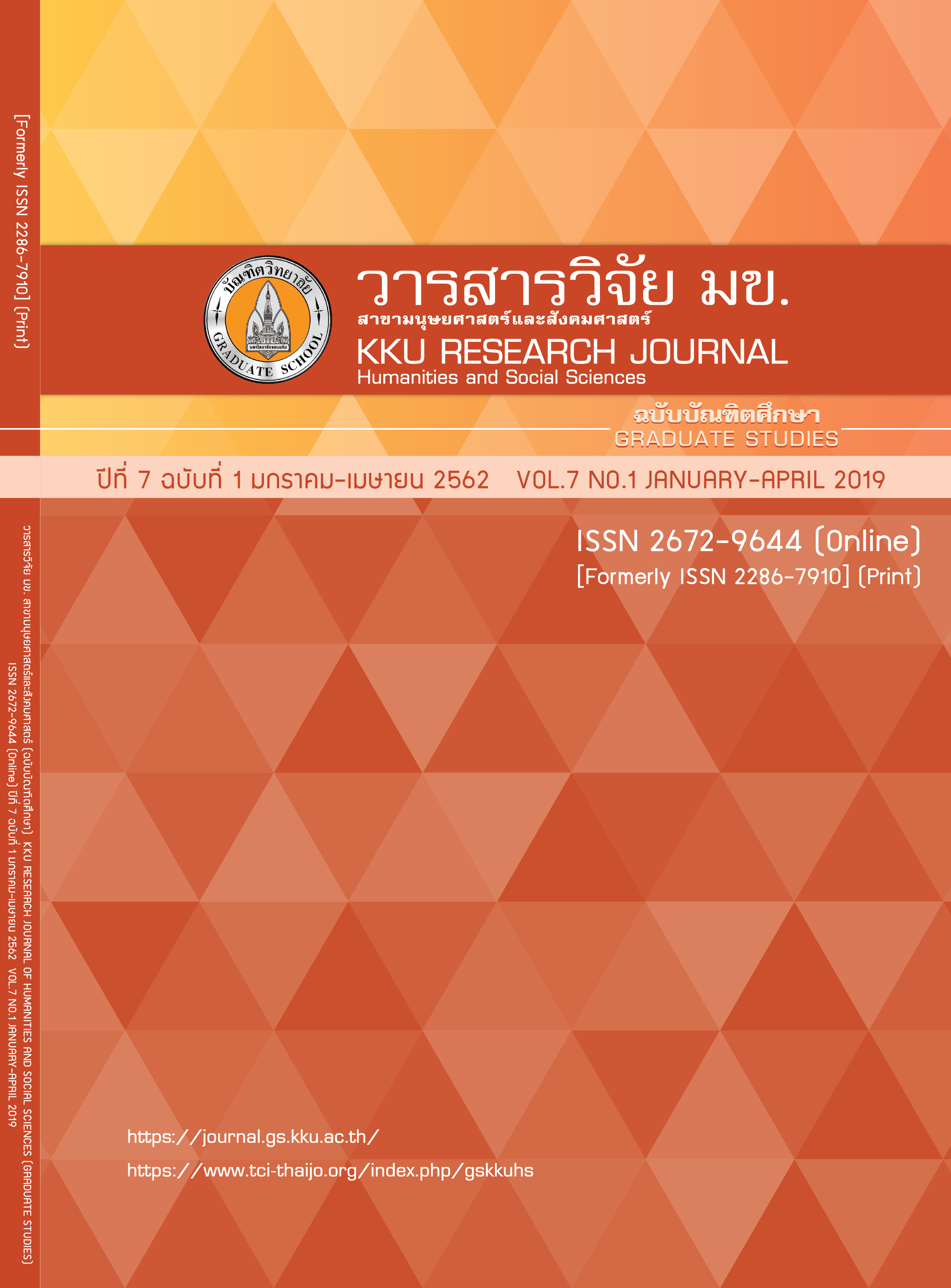Knowledge Management Based On “Ariyavaddhi” for Social Capital Empowerment
Keywords:
Knowledge management, Ariyavaddhi, Social capitalAbstract
The purposes of this study were 1) to study Vipassana meditation Ariyavaddhi 2) to develop Innovation Knowledge Management on Ariyavaddhi 3) To study the effects of Ariyavaddhi. The sample was used in the research. The knowing group of government, the knowing group of religion, the knowing group of community. Total of 11 people. And the performer group of community 40 people. The instruments used in the research were: Focus Group Discussion, Interview and Observation. Crawl from document and field study. Analyze results by content analysis. And the results were presented by descriptive analysis. Research findings were as : 1) Results to study Vipassana meditation Ariyavaddhi found that Everyone involved has proposed a principle that should be applied. Consists of 4 pillars. lead to 4 readiness. 4 pillars. : 1. Temple and community 2. Participants 3. Family 3. Trainers and 4 members is 1. Ethical Foundations 2. Relevant traditions that lead to attitudes and motivations for participation. 3. Consent of the participants and the community. 4. Principles of Buddhism. That is principle Ariyavaddhi 2) to develop Innovation Knowledge Management on Ariyavaddhi found that, Model of Innovative training kit there are 3 steps. 1. Step into the training. The study of the work from two district health promotion hospitals and one district hospital, and 1 provincial hospital to lead the truth of life. 2. Step Ariyavaddhi Contains 5 content groups, believe in, canon, Sata, Jaka and faculties. Each group have training procedures as follows, chant, Walk, meditation, Listen to sermon and Vipassana meditation practice. 3. End of training, Component review Social way from the stakeholders. 3) The effects of Ariyavaddhi, found that Changes in social costs are 5 levels, Internal level, Family level, Cooperation level, The temple and the community level, And every participant has strengthened in the matter of Dharma, cooperate, sacrifice, generous, And the movement of society in the form of volunteerism.
References
Issue eleven: 2560 - 2565. Bangkok: The Office of the Prime Minister; 2017.
2. Religion, Department. Rituals and Traditions. Bangkok: Agricultural Cooperative Federation of Thailand. ;
2009.
3. Mahachulalongkornrajavidyalaya University (In Thai). [Search This Thread]
May 20, 2015] From http://www.mcu.ac.th/site/bud09.php.
4 Phrakhru Chanthathammanuwat Mali Khotsang. Innovation Knowledge Management on the basis
tradition Buddhist For community Ph.D. (Innovation for Lacal Development) Rajabhat Mahasarakham
University; 2559. Thai.
5. Phra Prom Khunaporn (P. A. Puytto). Dharma Revised and Expanded.
Bangkok Sahadhammik; 2002.
6. Kanokporn Chimplee. Knowledge Management Models for Local Wisdom in
Wickerwork Handicrafts: A Case Study of Local Community Enterprises in
Nakhon Ratchasima Province. Ph.D. thesis Doctor of Philosophy
(Social Development and Environmental Management); 2555.Thai.



